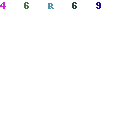Tamari’s ‘Syria, Egypt and Us’ lecture series begins this week
The Middle East has made national headlines in recent years, but what is not being covered will be part of the discussion in history professor Steve Tamari’s lecture series that begins this week.
Tamari will bring in two speakers for his “Syria, Egypt and Us” series. Ramah Kudaimi, membership and outreach coordinator at U.S. Campaign to End the Israeli Occupation, will talk about Syria, while Kahled Hamid, a doctor who previously blogged on the subject, will speak about Egypt.
Tamari, whose research focuses on Syria, said he will host a talk today – Monday – to give “background” on modern Syria, and Kudaimi will speak at 10 a.m. Wednesday in Peck Hall 2304.
The Middle East, according to Tamari, is “probably the most important region” in terms of foreign policy, national security and the United States’ reputation.
“I think it behooves Americans to know about these two countries in particular, which are central for U.S. standing in the world…,” Tamari said.
An uprising began in Syria in 2011, during which thousands have died and, most recently, chemical weapons were used.
Kudaimi will discuss what the United States can be doing in relation to Syria instead of bomb or let the killing continue in what she said is a “false binary.” Specifically, Kudaimi said the United States can push for a cease fire and put pressure on the appropriate parties or exert pressure on Russia to stop backing the Syrian regime.
Kudaimi said the news coverage has focused on violence in Syria, including the use of chemical weapons.
“When that’s the focus, we forget about the people,” Kudaimi said.
But there are also Syrians who “go out every single day” and protest to demand a change in government, according to Kudaimi.
Tamari said the situations in Syria and Egypt are “very confusing.”
“On the one hand you have sort of nasty government, but that doesn’t really justify a bombing campaign on the part of the U.S. or the coup on the part of the military, so I mean it’s really difficult and I think Americans, an American audience especially, needs to know how complicated these issues are…”
Though the majority of Americans, according to Kudaimi, were against the idea of a military strike in Syria and were wary, they do not know much about the issue itself. Kudaimi said it is good to see the American people have awakened.
“The U.S. is in a powerful position in the world and can potentially do positive things for the Syrian people,” Kudaimi said.
Kudaimi also noted that in spite of its opposition to the Syrian regime, America does work closely with other countries in similar situations.
Tamari will bring Hamid to campus Nov. 6 to discuss how Egypt’s democratic path has developed since the revolution in 2011.
“[Egypt] was on a democratic path, and now it’s in reverse maybe even, some people say it’s worse than it was before the fall of the last regime…,” Tamari said.
Roughly one year ago, the Egyptian people held their first democratic election and though, according to Tamari, “that government didn’t really play by the rules,” it was an elected government.
“Military came in earlier this year and took over and there was a lot of bloodshed. And still there’s still a lot of tension,” Tamari said. “And Egypt is a very important American ally.”
Hamid said there was hope that “things would keep moving in the right direction” after the events of January 2011. The “Muslim brotherhood,” according to Hamid, ran the government and made promises “core to their progress” that they did not hold to.
The Egyptians, according to Hamid, wanted a government that would serve and listen to the people.
“I think there is a significant fear now that nothing really has changed and Egypt is heading back…,” Hamid said.
Hamid said “the application of the tools of democracy” have to change what the Egyptians are not happy about within the country.
It is important, according to Hamid, to assess the “chances of gaining the democratic course in Egypt” rather than focusing on good or bad government.
“[The] issue is, ‘Are we still on the democratic track or not?’” Hamid said.
Filed Under: Historical Studies













